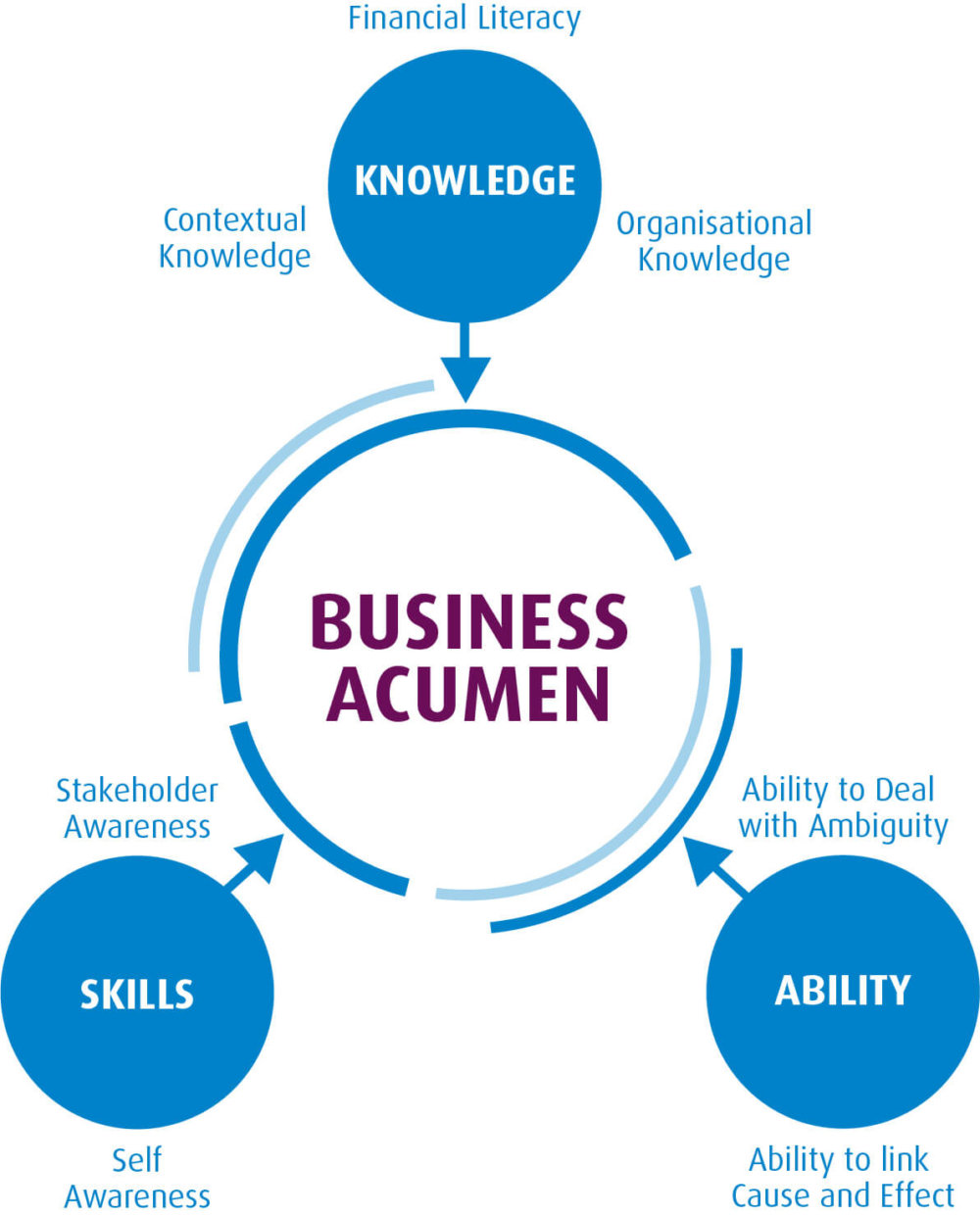What Does It Mean to Be Business Savvy? Key Traits and Skills. Discover what it means To be business savvy! Learn key traits & skills that help you thrive in The business world & make smart decisions effortlessly.
What Does It Mean To Be Business Savvy? Key Traits & Skills
Business savvy refers To understanding how businesses operate. This knowledge helps individuals make informed decisions. It involves analyzing situations critically. Strong financial acumen couples well with strategic thinking. Individuals without this skill may struggle in a competitive market.
Brief history of what does it mean To be business savvy? Key traits & skills
Business acumen has evolved over decades. Originally. Business knowledge focused on accounting principles. Over time. Emphasis shifted towards strategic management. Leaders recognized diverse skills were essential for success. Entrepreneurial approaches flourished. Shaping modern business practices.
How To implement what does it mean To be business savvy? Key traits & skills effectively
Implementing business savvy involves several steps. Start by assessing current market trends. Develop strong relationships within industry networks. Engage in continued education through workshops or online courses. Regularly analyze competition & refine strategies based on findings.
Key benefits of using what does it mean To be business savvy? Key traits & skills
Being business savvy brings numerous advantages. Enhanced decision-making leads To better outcomes. Stronger financial management promotes sustainable growth. Improved negotiation skills foster positive relationships. Lastly. Adaptability increases resilience against market changes.
Challenges with what does it mean To be business savvy? Key traits & skills & potential solutions
Challenges exist for aspiring business-savvy individuals. Limited resources may hinder learning opportunities. Resistance from team members complicates new initiatives. Additionally. Evolving markets present constant uncertainties. Addressing these issues includes creating tailored training programs & fostering open communication.
Future of what does it mean To be business savvy? Key traits & skills
The future emphasizes technology in business strategies. Data analytics will transform decision-making processes. Remote work influences team dynamics & management styles. Furthermore. Sustainability will become a core focus in operations. Adapting To these trends will ensure ongoing relevance in competitive landscapes.
Table of what does it mean To be business savvy? Key traits & skills
| Key Trait/Skill | Description |
|---|---|
| Financial Acumen | Understanding financial principles & metrics. |
| Strategic Thinking | Planning for long-term success through analysis. |
| Market Awareness | Staying informed about industry changes. |
| Networking | Building strong relationships within industry. |
| Adaptability | Adjusting strategies based on changing circumstances. |

Understanding Business Savvy
Being business savvy means possessing a clear understanding of dynamics within an organization. A keen sense of business operations enhances decisionmaking abilities. Individuals skilled in this area often recognize trends & understand various market forces. These insights enable them To assess risks effectively. For further details on business acumen. You may explore this informative article.
Key Characteristics of Business Savvy Professionals
Strong business savvy professionals exhibit certain traits that distinguish them. They possess analytical thinking skills. Enabling them To dissect complex problems. This analytical prowess helps in formulating strategic approaches. Additionally. Effective communication skills allow for conveying ideas clearly. Fostering collaboration.
Notably. Adaptability stands out among essential traits. In fastpaced business environments. A flexible mindset proves invaluable. Professionals must pivot based on evolving circumstances. Furthermore. Emotional intelligence plays a crucial role in developing workplace relationships. Understanding others’ emotions enhances teamwork & productivity.
Essential Skills for Business Savvy Individuals
Skills related To business acumen cover various areas. Financial literacy forms a foundational component. Individuals must read & interpret financial statements confidently. Mastering this skill leads To better budgeting & investment decisions.
Moreover. Strategic thinking serves as a vital skill. Professionals should evaluate situations from a broad perspective. This longterm vision helps align options with organizational goals. Additionally. Negotiation skills emerge as crucial in achieving favorable outcomes. Engaging constructively with stakeholders leads To positive results.
Networking as a Key Factor
Building a robust professional network proves essential for business success. Entrepreneurs & managers often depend on connections for opportunities. Networking creates pathways for collaboration & learning. Finding mentors within various industries boosts growth & inspiration.
Investing time in nurturing relationships fosters trust & mutual respect. Participating in professional associations. Conferences, & seminars offers exposure To diverse perspectives. Connections often result in valuable referrals & recommendations. Enhancing career prospects.
Crisis Management & DecisionMaking
Businesssavvy individuals excel during crises. They develop strategies for navigating unforeseen challenges. Maintaining composure in stressful situations enhances decisionmaking capabilities. Evaluating potential outcomes involves gathering relevant information quickly.
Implementing effective crisis management techniques helps mitigate risks. Creating contingency plans in advance proves beneficial. This forwardthinking approach allows for smoother recoveries. Clear communication further aids employees during uncertain times. Maintaining morale.
Market Awareness & Trend Analysis
Keen market awareness sets successful professionals apart. Understanding industry trends allows for proactive strategies. They continuously monitor shifts in consumer behavior & competitor actions. Staying informed leads To timely adaptations in business models.
Conducting thorough market research fosters insightful decisionmaking. Regular analysis of emerging trends generates unique opportunities. Anticipating changes positions an organization favorably against competitors. Businesssavvy individuals consistently seek knowledge & insights for growth.
Financial Acumen & Budget Management
Financial acumen represents a cornerstone of business savvy. Professionals must evaluate budgeting processes critically. They should set realistic financial goals after assessing current performance. Managing cash flow efficiently enhances operational sustainability.
Gaining financial insights helps individuals identify areas for improvement. Regularly reviewing financial statements promotes informed decisionmaking. Comprehending metrics such as ROI & profit margins informs effective strategies.
Customer Understanding & Relationship Building
Understanding customers enhances business strategies. Skilled professionals grasp customer preferences & needs. This knowledge drives better product development & marketing strategies. Creating personalized experiences reinforces customer loyalty & engagement.
Regular interaction with customers builds meaningful relationships. Collecting feedback fosters open communication channels. Implementing suggestions shows customers their opinions matter. Such actions establish trust & strengthen brand reputation.
Leadership & Team Management
Strong leadership qualities contribute significantly To business success. Businesssavvy leaders inspire & motivate teams. They establish a clear vision & communicate goals effectively. Effective delegation ensures team members utilize their strengths.
Practicing empathy allows leaders To connect with employees on a personal level. Providing constructive feedback & recognition motivates teams. This supportive environment fosters innovation & boosts productivity.
Time Management & Prioritization
Effective time management skills separate highachieving professionals from others. Prioritizing tasks facilitates focus on essential activities. Utilizing tools for calendar management enhances organizational abilities. Establishing a routine maximizes efficiency & minimizes stress.
Successful individuals avoid procrastination by setting clear deadlines. Breaking objectives into smaller tasks makes projects manageable. Consistent evaluation allows for course correction when necessary.
Innovation & Creative Problem Solving
Businesssavvy individuals embrace innovation as a driving force. They encourage creative thinking among teams. Generating novel ideas stimulates growth & differentiation in competitive landscapes.
Identifying problems requires a creative mindset. Approaching challenges from varied angles enhances problemsolving abilities. Encouraging brainstorming sessions fosters collaboration & ideasharing. Leading To innovative solutions.
Understanding Regulatory & Legal Frameworks
Awareness of legal frameworks influences business operations. Businesssavvy professionals navigate compliance challenges effectively. They understand regulations governing their industries & ensure adherence.
Legal knowledge protects organizations from potential liabilities. Individuals should engage legal experts for counsel on intricate matters. Continuous education on legal updates promotes informed decisionmaking.
Developing Strategic Partnerships
Strategic partnerships play a crucial role in business growth. Collaborating with complementary organizations enhances resources & capabilities. These alliances often lead To expanded market reach & shared expertise.
Identifying potential partners requires extensive networking. Building relationships based on trust & mutual benefit strengthens alliances. Formalizing agreements through contracts safeguards interests & clarifies expectations.
Continuous Learning & Adaptation
Continuous learning represents an unwavering commitment To personal development. Successful professionals prioritize staying updated on industry trends. Engaging in workshops. Courses, & networking events expands knowledge base.
Adapting To technological advancements also contributes significantly. Leveraging new tools streamlines processes & enhances efficiency. Embracing change fosters resilience in an everevolving environment.
Personal Experience in Business Savvy
During my career journey. I encountered various challenges that refined my business acumen. I focused on understanding market dynamics. This led me To develop strategic plans that benefited my team. Learning from experiences sharpened my analytical skills tremendously.
Features of Business Savvy Professionals
- Critical Thinking 🧠
- Effective Communication 💬
- Adaptability 🌍
- Emotional Intelligence ❤️
- Financial Literacy 💰
Conclusion on Business Savvy Skills
Mastering traits & skills associated with business savviness requires dedication. These skills contribute directly To professional success. By continuously improving & learning. Individuals can position themselves favorably in complex business environments.

What Does It Mean To Be Business Savvy? Key Traits & Skills
Understanding Business Savvy
Business savvy refers To an individual’s ability To understand concepts. Challenges, & dynamics that emerge within business environments. This attribute goes beyond technical skills. Comprehending market trends. Customer behaviors, & competitive landscapes represents key components. It encompasses strategic thinking & financial literacy. Individuals equipped with business savvy can navigate complexities effectively.
Furthermore. This ability allows one To make informed decisions. Anticipating challenges plays a massive role. Thus. Being proactive often results in a competitive advantage. Learning To identify opportunities significantly benefits career growth. Business savvy encompasses a broad range of skills. It helps drive organizations toward success.
In today’s dynamic landscape. Organizations seek individuals with business acumen. This demand leads To growing importance of honing these skills. Smart leaders foster environments where businesssavvy culture thrives. Networking. Collaboration, & mentorship are crucial for strengthening this competency. Professionals who invest in their growth enjoy rewarding careers.
Essential Traits of a BusinessSavvy Individual
1. Strong Analytical Skills
Those who possess strong analytical skills excel in interpreting data. They can recognize patterns & trends that others often overlook. Leveraging data provides insights into decisionmaking processes. This skill aids in evaluating risks & rewards in various situations. Businesssavvy individuals harness analytical abilities To formulate effective strategies.
Moreover. They critically assess current performance metrics. This evaluation helps identify areas for improvement. By dissecting numerical information. One can make strategic interventions. Advanced analytical skills assist in gaining competitive advantages. Ultimately. Honing this trait can influence organizational success.
2. Financial Literacy
Financial literacy represents another vital trait of businesssavvy individuals. Understanding financial statements. Budgets, & forecasts enhances decisionmaking capabilities. Savvy professionals can decipher intricate financial details effortlessly. Knowledge of finance helps develop effective business strategies.
Additionally. This knowledge supports investment strategies while minimizing potential risks. Managers who possess financial literacy effectively communicate with stakeholders. Competence in finance often leads To career advancement as executives value this skill highly. Financially literate leaders contribute positively To organizations.
3. Strategic Thinking
Strategic thinkers approach problems holistically. They analyze various aspects before arriving at solutions. Effective strategists envision longterm consequences for shortterm decisions. This foresight helps make informed choices aligned with organizational goals.
Furthermore. Strategic thinking encourages creativity. Generating innovative solutions requires looking at challenges from different angles. Approaching issues with fresh perspectives fosters adaptive problemsolving. Savvy professionals can pivot during crises thanks To their strategic abilities.
Key Skills To Develop Business Savvy
1. Networking Skills
Networking forms a core component of business savviness. Building relationships creates opportunities. Establishing connections allows knowledge sharing & collaboration. Networking enables individuals To access valuable insights. Boosting their understanding of various sectors.
Active participation in industry events helps participants expand networks. Engaging in discussions with peers can spark creative ideas. Additionally. Mentorship opportunities often arise during networking. Learning from experienced professionals enhances one’s business acumen over time.
2. Negotiation Skills
Negotiation skills play a crucial role in business dealings. Individuals skilled in negotiation achieve favorable outcomes in various scenarios. Effective negotiators listen actively while articulating their thoughts convincingly. Mastering this skill leads To mutually beneficial agreements.
Furthermore. Successful negotiators can adapt their strategies based on circumstances. Understanding human psychology aids in recognizing others’ needs & motivations. Strong negotiators foster lasting relationships while achieving business objectives. This skill greatly contributes To an organization’s success.
3. Adaptability
In a rapidly changing business environment. Adaptability becomes essential. Businesses face constant shifts due To technology. Economics, & consumer preferences. Individuals who embrace change thrive in this dynamic landscape. Adaptability allows for quick adjustments in strategies & tactics. Ensuring resilience.
Moreover. Adaptable professionals can pivot when challenges arise. Embracing new technologies & methodologies maximizes efficiency. Cultivating an agile mindset empowers individuals To find innovative solutions amid uncertainties. Ultimately. Adaptability signifies business savvy.
Comparison of BusinessSavvy Traits & Skills
| Trait/Skill | Definition | Importance | Example | Emoji |
|---|---|---|---|---|
| Analytical Skills | Ability To interpret data | Informed DecisionMaking | Evaluating market trends | 📊 |
| Financial Literacy | Understanding financial concepts | Strategic Planning | Managing budgets | 💵 |
| Negotiation Skills | Art of persuasion | Favorable Outcomes | Contract agreements | 🤝 |
Developing Business Savvy
1. Continuous Learning
Continuous learning contributes significantly toward acquiring business savvy. Engaging in courses & workshops enhances knowledge. Many professionals seek certifications relevant To their fields. This commitment ensures they remain competitive in their industries.
Additionally. Reading books & articles expands perspectives. Staying informed about markets & trends keeps individuals prepared. Adapting To developments within industries fosters growth. Consequently. Continuous learning encourages critical thinking. Enhancing business acumen.
2. Seeking Mentorship
Establishing strong mentormentee relationships aids in personal development. Mentors provide guidance & support through their experiences. Building connections with seasoned professionals allows for invaluable insights. Learning from their successes & failures leads To significant growth.
Moreover. Mentors can highlight blind spots individuals may not recognize. Feedback helps refine skills & approaches. A mentor plays a vital role in navigating professional landscapes. Engaging with career coaches further enhances one’s development.
3. Applying Knowledge Practically
Theoretical knowledge alone does not ensure business acumen. Applying skills learned in realworld scenarios drives growth. Gaining experience through internships or entrylevel roles provides practical exposure. Actively participating in projects helps individuals test their abilities.
Trying different roles within organizations enriches understanding. Experimentation promotes confidence when solving challenges. Practical experience contributes significantly To developing a businesssavvy mindset. Emphasizing handson learning fosters competence in decisionmaking.
RealLife Experiences in Business Savvy
Throughout my career. I encountered many scenarios necessitating business savvy. One instance was during a major project negotiation. Realizing team dynamics & financial implications greatly influenced outcomes. I worked closely with stakeholders To present a strong case.
This experience spotlighted The importance of analytical skills. By evaluating necessary data. I secured favorable terms. The outcome not only benefited my organization but also helped foster relationships. It showcased how business savvy can lead To fruitful collaborations.
Networking & Collaboration
1. Importance of Networking
Networking promotes growth opportunities. Building connections allows access To valuable insights. Individuals develop relationships with peers. Mentors, & industry leaders. These interactions often yield collaboration opportunities.
Additionally. Networking opens doors for potential partnerships. Sharing knowledge enhances understanding among professionals. Engaging with diverse perspectives fosters creativity. Networking encourages individuals To stay informed about different sectors.
2. Collaboration in Business
Collaboration among team members amplifies ideas. Diverse skill sets contribute To comprehensive solutions. Effective collaboration fosters innovation. Often leading To successful projects. Engaging in discussions among teams enhances problemsolving capabilities.
Furthermore. Collaborative cultures promote employee satisfaction. Team members feel valued & empowered when contributing. This engagement often translates into higher productivity rates. Thus. Collaboration represents a critical component of business success.
3. Leveraging Social Media Connections
Social media presents unique networking opportunities. Professionals leverage platforms like LinkedIn for connections. Sharing expertise through posts fosters visibility & credibility. Engaging actively with peers creates community within industries.
Additionally. Social media enables individuals To connect with experts across fields. Following industry leaders can inspire innovative ideas. Regular participation in discussions enhances visibility & relationships. Therefore. Utilizing social media effectively amplifies networking capabilities.
Building Leadership Skills
1. Leadership Development Programs
Organizations often invest in leadership development programs. These initiatives help nurture skills among aspiring leaders. Structured training equips individuals with tools necessary To lead effectively. Programs focus on enhancing communication. Negotiation, & critical thinking skills.
Moreover. Mentoring opportunities arise during these initiatives. Leaders often share their experiences & insights. This transfer of knowledge contributes To The growth of emerging leaders. Ultimately. Investing in leadership development benefits organizations.
2. Emotional Intelligence
Emotional intelligence plays a significant role in effective leadership. Understanding emotions helps navigate interpersonal relationships. Savvy leaders exhibit empathy. Allowing them To connect with teams. This trait fosters trust & transparency among team members.
Additionally. Strong emotional intelligence leads To better conflict resolution. Leaders outstanding in this area actively listen while validating others’ perspectives. By addressing concerns. Leaders strengthen bonds within teams. Thus. Emotional intelligence enhances leadership effectiveness.
3. Reflective Practice
Incorporating reflective practices encourages personal growth. Leaders benefit from assessing their experiences critically. Reflecting on successes & setbacks enhances learning. This introspection aids in identifying areas for improvement. By acknowledging strengths & weaknesses. Individuals can cultivate enhanced leadership qualities.
Regular feedback from teams also contributes To leader development. Understanding how others perceive one’s actions fosters growth. Leaders committed To selfevaluation become more effective decisionmakers. Consequently. Reflective practice enhances overall leadership capabilities.
Enhancing Communication Skills
1. Verbal Communication
Effective verbal communication plays a crucial role in business savviness. Articulating thoughts clearly & confidently facilitates understanding. Engaging in presentations helps sharpen these skills. Practicing discussions with peers or mentors enhances fluency.
Moreover. Active listening represents an essential aspect of verbal communication. Recognizing others’ viewpoints fosters collaborative discussions. Encouraging open dialogue helps eliminate misunderstandings between team members. Clear communication builds strong workplace relationships.
2. Written Communication
Written communication proficiency also contributes significantly. Crafting clear & concise emails. Reports, & proposals enhances professional credibility. Savvy individuals practice writing regularly. Ensuring effective expression of ideas. Clarity in writing helps readers comprehend intended messages quickly.
Utilizing professional language reflects competency in written communication. It enhances overall business interactions. Regular feedback helps refine writing styles over time. A wellcrafted message lays The groundwork for successful communication in various scenarios.
3. NonVerbal Communication
Nonverbal communication encompasses body language. Facial expressions, & gestures. Understanding these cues allows individuals To navigate interpersonal interactions effectively. Observing nonverbal signals aids in recognizing emotions & intentions. Savvy professionals can adjust their communication styles based on observed cues.
Additionally. Being aware of one’s own nonverbal signals ensures clarity in interactions. Maintaining appropriate eye contact & open posture fosters trust. Nonverbal communication often speaks louder than words. Impacting overall business dynamics.
The Role of Technology in Business Savvy
1. Technology Awareness
Staying informed about emerging technologies enhances business savviness. Awareness of advancements helps professionals adapt strategies accordingly. Technology shapes industries; those uninformed risk falling behind. Understanding tools & platforms enables organizations To leverage opportunities.
Moreover. Embracing technology fosters efficiency within workplaces. Utilizing productivity software optimizes time management. Learning new technologies helps improve daily operations significantly. A techsavvy individual can drive organizational innovation visibly & tangibly.
2. Data Analysis Tools
Embracing data analysis tools enhances decisionmaking capabilities. These tools provide insights that guide strategic planning. Businesssavvy individuals often leverage analytics for market research. Understanding customer behaviors allows for personalized marketing approaches.
Additionally. Utilizing data visualization tools communicates findings effectively. Presenting data visually aids comprehension among diverse audiences. Consequently. Comprehending complex data becomes far easier. This ability ensures datadriven decisions within organizations.
3. Digital Marketing Strategies
Digital marketing represents a transformative force within modern businesses. Understanding various techniques enables organizations To reach wider audiences. Familiarizing yourself with SEO. Social media marketing, & content creation enhances visibility. Savvy professionals leverage digital tools effectively in their strategies.
Moreover. Employing analytics in digital marketing campaigns enhances targeting precision. Tailoring messages based on audience preferences improves engagement. This approach ultimately leads To higher conversion rates. Therefore. Digital marketing skills significantly contribute To overall business savvy.
Final Thoughts on Business Savvy
Businesssavvy individuals possess key skills critical for navigating complex environments. Traits such as analytical skills. Financial literacy, & strategic thinking empower professionals. Continuous learning. Networking, & applying knowledge practically also drive growth.
Investing in emotional intelligence & effective communication further enhances leadership capabilities. In today’s evolving landscape. Adapting requires openness To new ideas. This willingness signals a businesssavvy mindset capable of thriving amid challenges.
For more insights on business acumen. Check out this resource. Additionally. Explore this informative link for further guidance.
Building a solid foundation in these areas plays an integral role in achieving professional success.
To explore further business ideas. Visit our website.
What is meant by being business savvy?
Being business savvy refers To The ability To understand The dynamics of The business world effectively. It involves having a strategic mindset. Recognizing opportunities, & making informed decisions that contribute To an organization’s success.
What are The key traits of a businesssavvy individual?
Key traits of a businesssavvy individual include strong analytical skills. Effective communication. Adaptability. A proactive mindset, & a deep understanding of market trends & customer needs.
How important is financial literacy in being business savvy?
Financial literacy is crucial for being business savvy. As it allows individuals To analyze financial statements. Understand budgeting. Manage cash flow, & make informed financial decisions that can impact The business’s profitability.
What role does networking play in being business savvy?
Networking plays a significant role in being business savvy because it helps individuals build valuable relationships. Gain insights from industry peers, & create opportunities for collaboration & partnerships.
Why is strategic thinking important for businesssavvy professionals?
Strategic thinking is important as it enables professionals To assess various factors affecting The business. Anticipate future challenges, & develop longterm plans To achieve organizational goals effectively.
What skills are essential for making informed decisions in business?
Essential skills for making informed decisions include critical thinking. Data analysis. Problemsolving, & The ability To evaluate risks versus rewards before taking action.
How can someone develop their businesssavvy skills?
Individuals can develop their businesssavvy skills through continuous learning. Seeking mentorship. Attending workshops, & gaining practical experience in various business functions.
What is The significance of understanding market trends?
Understanding market trends is significant as it helps businesses To adapt their strategies. Stay competitive, & identify potential opportunities or threats in The market.
How does communication affect business savvy?
Effective communication is a cornerstone of business savvy. It enables individuals To convey ideas clearly. Negotiate successfully, & foster collaboration among team members & stakeholders.
What is The impact of technological proficiency on business acumen?
Technological proficiency enhances business acumen by allowing individuals To leverage digital tools for data analysis. Communication, & automation. Leading To more informed & efficient decisionmaking.
In what ways can adaptability contribute To being business savvy?
Adaptability contributes To being business savvy by enabling individuals To respond effectively To changing market conditions. Adjust strategies, & embrace new opportunities as they arise.
Why is customer understanding important for business success?
Understanding customers is vital for business success because it drives product development. Marketing strategies, & customer service practices. Ultimately influencing customer satisfaction & loyalty.
What is The relationship between leadership skills & business savviness?
Leadership skills are closely related To business savvy as effective leaders inspire teams. Drive strategic initiatives, & create a vision that aligns with The organization’s goals & market demands.
How does risk management factor into business savvy?
Risk management is a critical component of being business savvy. As it involves identifying potential risks. Developing mitigation strategies, & making decisions that balance risk & opportunity.
Can emotional intelligence play a role in being business savvy?
Emotional intelligence plays a significant role in being business savvy by helping individuals navigate workplace dynamics. Manage relationships, & make empathetic decisions that positively impact The team & organization.
Conclusion
Being business savvy means more than just understanding numbers. It’s about having The right mix of skills, like being a good communicator, a strategic thinker, & a problem solver. These traits help you navigate The business world with confidence. Building relationships & being adaptable are also key To success. Remember, it’s not just about The hard skills; emotional intelligence plays a big role too. So, whether you’re just starting or looking To grow, focus on developing these qualities. With time & practice, you can become truly business savvy & make a positive impact in your field.





